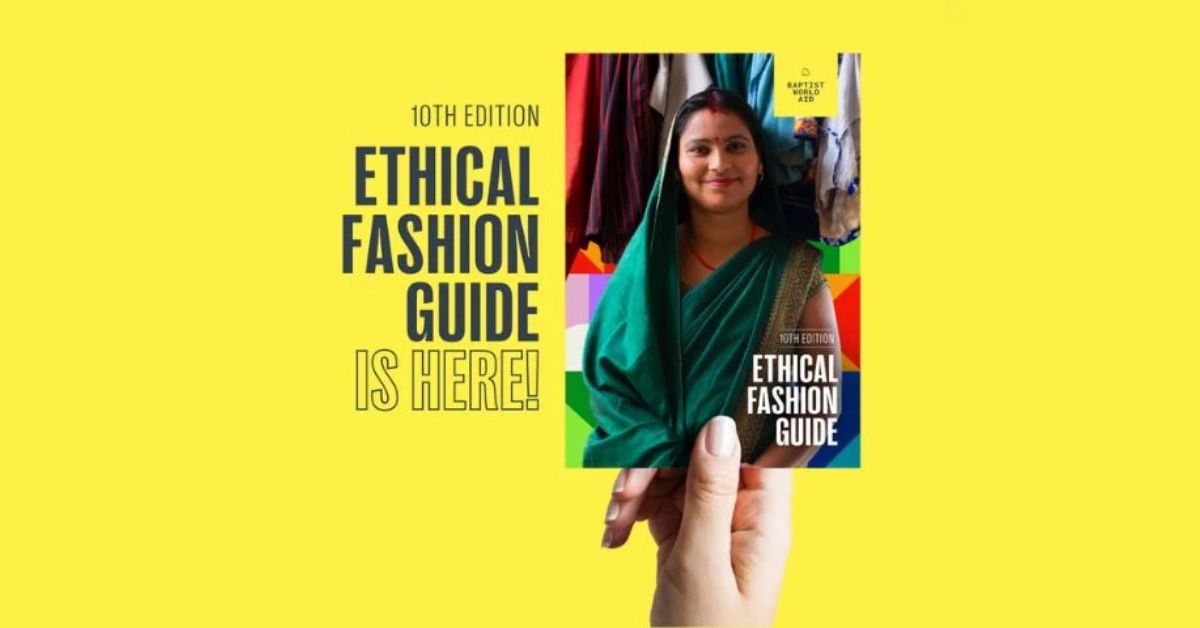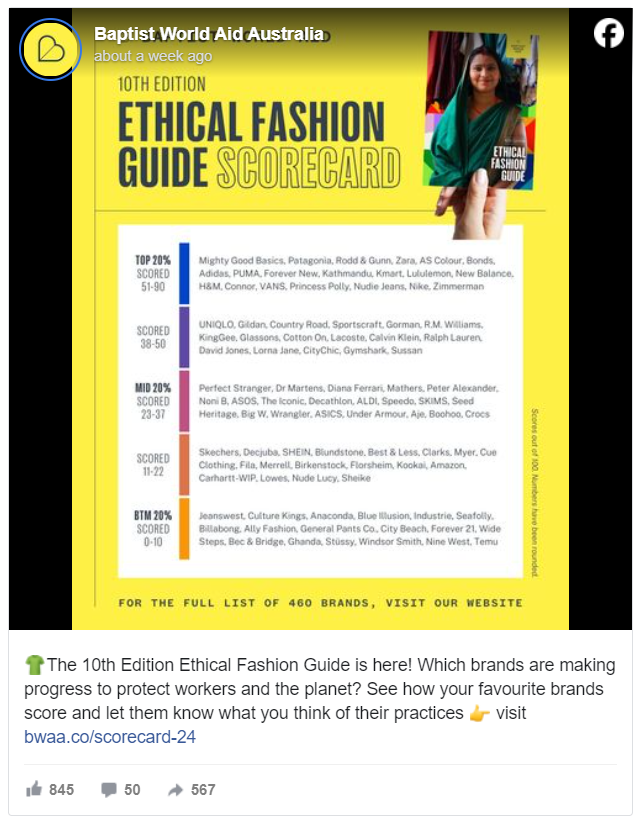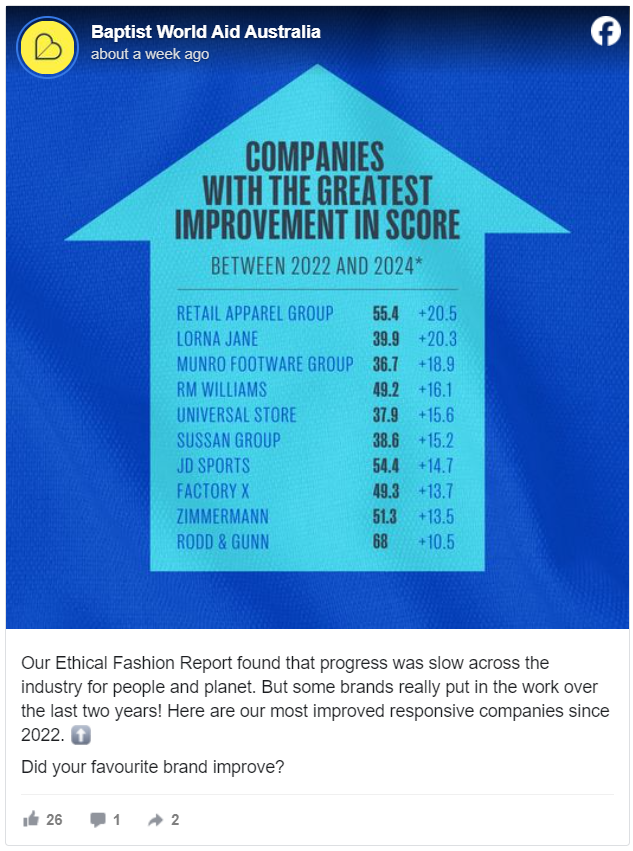
By: Mike Crooks
If you’re concerned about how your clothes are produced – how much people are paid to make them, and how those people are treated – then Baptist World Aid’s latest Ethical Fashion Report is the fashion guide for you.
“Ethical fashion” describes clothing that is made in ways “that respects workers and protects the environment,” according to BWAA, which has been campaigning to end worker exploitation for over a decade.
“Significant cost”
Of the millions of people who work in the clothing production industry throughout the world, many work in unjust and exploitative conditions. The issue came to world prominence in 1991, when activist and Behind the Swoosh author Jeff Ballinger lifted the curtain on Nike’s Indonesian “sweatshops” – factories where employees were on low wages and worked in appalling conditions.
The Ethical Fashion Report explores the Australian fashion industry’s progress towards both ethical and sustainable practices.
The Ethical Fashion Report explores the Australian fashion industry’s progress towards both ethical and sustainable practices.
“In today’s cost-of-living crisis, many consumers are justifying cheaper fashion purchases, while some companies are choosing to cut back on their Environment, Social and Government [ESG] initiatives,” Kat Halliday, advocacy coordinator at BWAA, said in a statement. “But these choices come at a significant cost—particularly for workers in garment-producing regions, where low wages further exacerbate their already precarious conditions.”
Lack of a “living wage”
The report has found that out of 120 fashion brands sold in Australia, only two “pay a living wage at any final stage factories.” A living wage, according to the United Nations, “is the wage level that is necessary to afford a decent standard of living for workers and their families.”
The report also found that:
- 51 per cent of Australian fashion companies lack policy or strategy to address gender inequality at production facilities;
- Only 35 per cent of Australian fashion companies have responsible purchasing practices policy and strategy.
The report includes the story of Hasina, a garment worker from Bangladesh, who is forced to work overtime without pay.
“We have to accept this because what will we eat if we lose our job?” she said. “For us poor, we cannot be so choosy. No matter how they behave, we must go there to work.”
Brand ratings
The report, which was released to coincide with the United Nation’s International Day for the Eradication of Poverty, includes an ethical ranking of brands sold in Australia. The BWAA researched the companies across “three tiers of the supply chain” and the brands were given a score out of 100, “based on how they’re going at protecting workers and the environment.”

- Brands that scored well included: Patagonia, Rodd & Gunn, Zara, Holeproof, Champion, Bras N Things, Bonds, Adidas, Puma, New Balance, Kathmandu, Target and Kmart.
- Brands which scored poorly include: Amazon, Jeanswest, TK Maxx, Seafolly, Industrie, Roxy, Billabong, General Pants and City Beach.
“Companies are only improving at the rate of one percent per year, meaning at this rate it will take 69 years for most fashion companies to get to 100,” Ms Halliday said. “They must accelerate their progress—not just for the millions of workers facing unsafe and forced labour conditions daily, or the environment suffering from pollution and overproduction, but also to meet their own ESG targets.”

Cost-of-living crisis
Part of the reason why brands are scoring low on the scale, is the ongoing cost-of-living crisis, which has impacted on consumer spending, making companies scale back from “non-essential” measures, such as ethical initiatives.
“Persistent economic pressures have also forced consumers to justify cheaper purchases from ultra-fast fashion brands,” the report states.
200,000 tonnes of clothes are sent to landfill each year in Australia
This has contributed directly to the 200,000 tonnes of clothes that are sent to landfill each year in Australia (Australians buy an average of 56 items of clothing per year, and spend $2,500 on fashion, the report states).
“As we release our 10th Edition Ethical Fashion Report on the Day for the Eradication of Poverty, it’s alarming to see that only two companies are paying a living wage at all final-stage facilities,” Gina Snodgrass, advocacy specialist at BWAA, said.
“It’s time to call on companies to play their part and take meaningful action to ensure all workers in their supply chains earn enough to meet their family’s basic needs.”
For more information visit baptistworldaid.org.au.
Article supplied with thanks to Hope Media.
About the author: Michael Crooks is a senior journalist and former news editor of Who magazine. His work has appeared in People, Marie Claire, The Daily Telegraph, Herald Sun, news.com.au, Qantas magazine and more.
